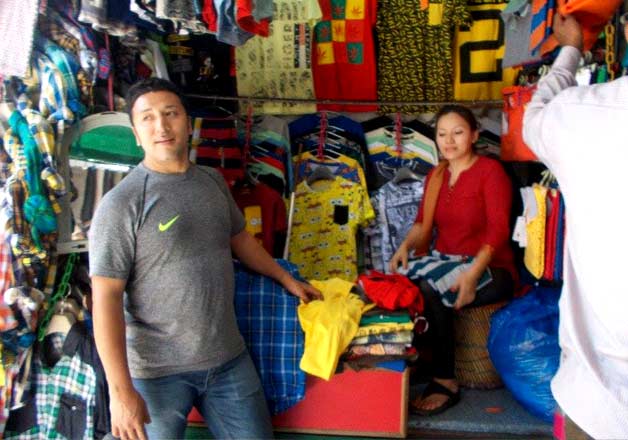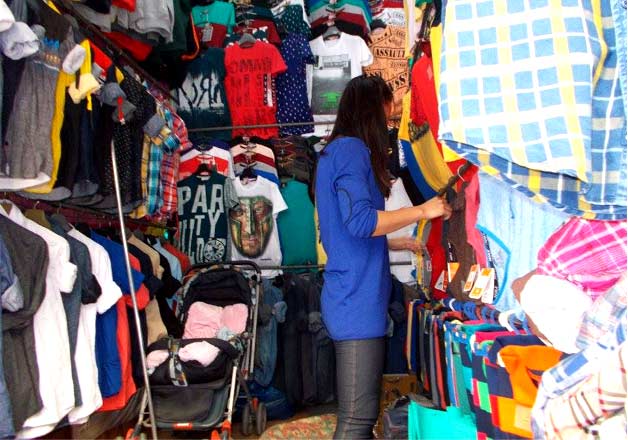
New Delhi: Women of Tibetan society are considered financially independent and play same role as men in the overall socio-economic development.
Tibetan women do physical labour out of their homes also along with the household chores.
An apt example of the same can be seen when one walks through the narrow lanes of monastery market in the national capital. A wave of positivity seems to be engulfing! Walking through the path, first thing that your eyes will catch are the beautiful women selling distinct stuffs in their shops with all hardwork and passion.
In Indian society where women are generally touted as shopaholics but not seen as shop keepers; these women, very effectively, stand averse to the belief.
The concept of women shopkeeper is not so popular in India. But there is a place in New Delhi which is breaking this usual concept.
The famous Tibetan Market in Civil Lines, also called Monastery Market, proves this belief wrong. Despite being a male-dominated place, the market is ruled by women. They portray a perfect example of an evolving culture in Indian society.

Not so widely spread, the area is famous for its cheap yet sassy clothes, jewellery and similar stuff. Women shopkeepers can be spotted all around selling summer clothes, leather items, footwear, Tibetan artifacts and semi-precious stones.
Tslha from Tibet runs the business of clothes in the market. She has been living in Delhi for the past 15 to 20 years. She says that despite being a women shopkeeper, she feels safe and secure.
“All the people here belong to same place. I work from 10:00 am to 8.30 pm and nothing harmful happened to me ever. The people are helpful and running my own business makes me happy and satisfied".
Tenzin, another shop-owner selling clothes has been running the business since 10 years.
“In our culture, women are financially independent. Its roots can be traced from the nomadic life of Tibetans. Tibetan women used to do physical labour as well as household chores. They played the same role and occupied the same position as men in socio-economic lift. They all do ‘men's work'. A woman's business acumen was considered an important criterion to judge her virtue in Tibet. Daughters-in-law are regarded virtuous if they are good at doing business,” she said.

A young shopkeeper Neha, 22, working in a garment shop said that she is quite happy that their work is being appreciated. "Crime in Delhi is high but I never felt anything harmful over here. Everyone is helpful and we do help each other when needed, even it's a small thing like taking care of shop when the owner is not there."
If we look at the gender-specific roles of men and women in Tibetan culture, it is believed that though women engage in commercial activity rather than being confined to the household chores, there is still a disparity between the works of two. Tibetan women work harder than men. Men usually opt for jobs which require travelling so that they can have fun while women run the business and look after children.
The market is controlled by an organization run by these people. They have a chronological way of implementing any change in their market.
Tering, who owns a men's clothes shop, has been living in Delhi from past 10-11 years and working in the market since then. On asking about the special activities in market she said, “Like people over here celebrate Diwali, we have our festival called Loshar which is generally celebrated in the month of February or March. This year we have celebrated it on 19th Feb. The people around here are full of enthusiasm during this period of time".
Tibetan women are believed to be strong, healthy with individual opinion and they work harder than men. This aspect of society is making Tibetans to prosper economically.
Tibetan market built since the 1960s is home to three generations of Tibetan refugees. Ever since these refugees settled here, they have acclimatized to the place and lived happily.




















